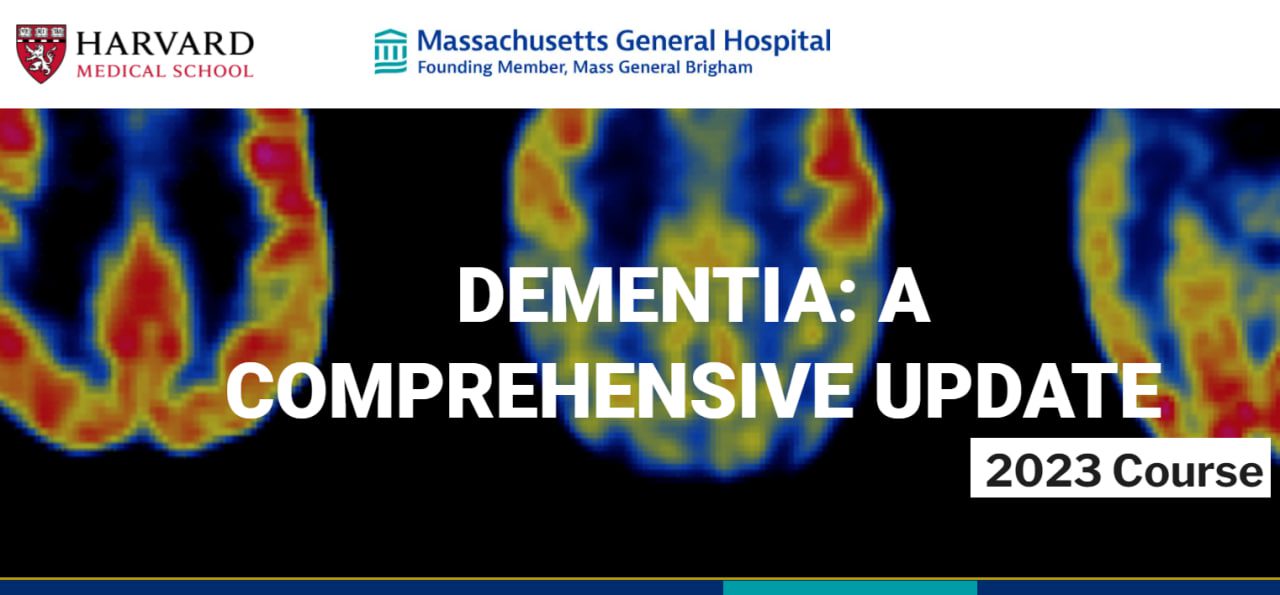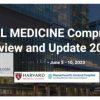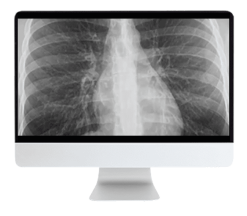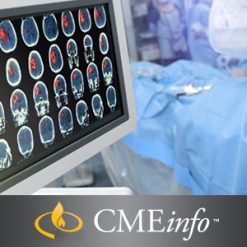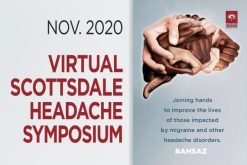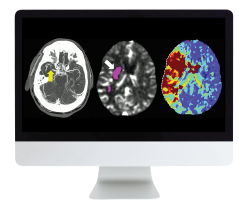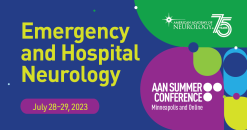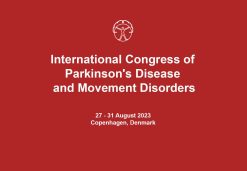Harvard Dementia A Comprehensive Update 2023
$45,00
This Product is shared via google drive download link, So please share your correct Gmail id while placing the order .Please note that there are no CME points or certificate associated with this course Samples for Courses Can be found here: Free Samples Here!
Categories: NEUROLOGY, HARVARD MEDICINE, Psychiatry
Harvard Dementia A Comprehensive Update 2023 (CME VIDEOS)
Harvard Dementia A Comprehensive Update 2023 The spectrum of neurodegenerative diseases spans from asymptomatic preclinical disease to very mild cognitive impairment to frank dementia. Alzheimer’s disease (AD), the most common cause of dementia, is a devastating condition that affects patients and their whole family of caregivers at tremendous emotional and financial cost.
Format : 39 Videos + Syllabus
File Size : 9.6 GB
- The spectrum of neurodegenerative diseases spans from asymptomatic preclinical disease to very mild cognitive impairment to frank dementia. Alzheimer’s disease (AD), the most common cause of dementia, is a devastating condition that affects patients and their whole family of caregivers at tremendous emotional and financial cost.
- Dementia: A Comprehensive Update is a three-and-a-half day, annual, review course designed by clinicians for clinicians. The course is organized by Neurology faculty members of Harvard Medical School who specialize in the care of patients with cognitive and behavioral disorders at Brigham and Women’s Hospital, Massachusetts General Hospital, Beth Israel Deaconess Medical Center, McLean Hospital and Banner Sun Health Research Institute/Banner Health. The course takes a practical and multidisciplinary approach to understanding and treating dementia and is designed for healthcare professionals involved in the diagnosis, management and investigation of disease states causing dementia. This cutting-edge course is in its 26th year, includes locally, nationally and internationally renowned faculty and attracts 300-400 participants from throughout the U.S. and the world.
- The organization of the course takes an integrative approach by interweaving lectures within the main program that establish the neuroanatomical and cognitive framework underlying disorders of cognition; address specific diseases (e.g. AD, vascular cognitive impairment/dementia, Parkinsonian dementias, frontotemporal dementias); and discuss the latest clinical practices and research approaches to the diagnosis and treatment of dementing illnesses (e.g. Alzheimer’s Association Clinical Practice Guidelines; practical office-based assessments; application of biomarkers, spinal fluid and amyloid/tau PET imaging in dementia; clinical treatment; prevention and experimental trials), with optional, fee-based programs. Lectures and programs also provide education on special topics in dementia such as managing problem behaviors; disclosure of diagnosis and risk; chronic traumatic encephalopathy; caregiving in dementia; pain, palliation, hospice care; medicolegal issues; capacity and competence; undue influence; driving; long-term/ nursing home care; delirium and dementia; neuroethics; advanced care planning; and neuropsychology of aging.
-
Who Should Attend
-
- Primary Care Physicians
- Specialty Physicians
- Nurses
- Nurse Practitioners
- Physician Assistants
- Psychologists
- Social Workers
-
Learning Objectives
Upon completion of this activity, participants will be able to:
-
- Describe current understanding of epidemiology, risk factors, pathobiology, societal costs, clinical differences, gaps in knowledge, and challenges in distinguishing and managing the spectra of normal cognitive aging, mild cognitive impairment (MCI), Alzheimer’s disease (AD) and other neurodegenerative dementias
- Distinguish pre-clinical AD, MCI due to AD/prodromal AD and AD dementia phases
- Summarize tiered diagnostic and management approaches, and future experimental therapeutics strategies under consideration for risk reduction, prevention diagnosis and treatment of the AD spectrum
- Differentiate, based on neuropathology, affected neural systems, clinical criteria and biomarkers, AD and its atypical variants from other common dementias including Dementia with Lewy Bodies (DLB), Vascular Cognitive Impairment (VCI)/Vascular-Ischemic Dementia, Frontotemporal Degeneration (FTD), Parkinson’s disease with Dementia (PDD), Parkinson’s-Plus Syndromes and less common dementias
- Identify and explain the importance of evidence-based and coordinated individualized approaches to the evaluation and management of MCI, AD and neurodegenerative dementias that stress combining: (i) early and accurate detection, assessment and monitoring; (ii) psycho-education and non-pharmacological interventions; (iii) pharmacological strategies; and (iv) caregiver, psychosocial/environmental, quality of life, ethical, medico-legal and end-of-life considerations
- Apply data-supported diagnostic, behavioral, pharmacological, and environmental strategies, including appropriate and tiered use of cognitive tests/measures, labs, and imaging studies/biomarkers; and delineation of expectations, roles (i.e., indications and benefits), cautions (i.e., risks, side-effects, warnings) and treatment nuances in the interdisciplinary management of CI, AD and neurodegenerative dementias
- Demonstrate neural processes and functional networks that support perception and cognitive systems including memory, language, attentional, frontal/executive, visuospatial and motor systems
- Explain the roles of office-based screening instruments, mental status exam (MSE) and neuropsychological evaluation in the diagnosis and management of dementia; develop efficient approaches to MSE and use of screening instruments (e.g. MoCA); and interpret and compare cognitive testing/neuropsychological performance patterns for different conditions and clinical syndromes (e.g. MCI, AD, FTD, primary progressive aphasias, posterior cortical atrophy, DLB)
- Utilize appropriate laboratory tests, imaging studies, and neuropsychological testing for the diagnosis of dementia in clinical practice; incorporate appropriate use of clinical biomarkers (e.g. CSF a-beta/tau, MRI, FDG- and Amyloid-PET) in evaluation of neurodegenerative dementias to differentiate AD and non-AD processes; and explain clinical versus research use and apply appropriate use criteria/guidelines to the clinical use of amyloid PET imaging in the diagnosis of AD-like syndromes
- Apply data-supported pharmacologic management strategies including the roles (i.e., indications and benefits), cautions (i.e., risks, side-effects, warnings) and potential alternatives to using cholinesterase inhibitors, memantine, antipsychotics and antidepressants in dementia and AD
- Integrate a holistic approach to management of problem behaviors and neuropsychiatric symptoms (e.g. aggression, apathy, anxiety, depression, psychosis) in individuals with dementia that stresses education and behavioral and non-pharmacological interventions as first-line approaches
- Discuss the important role, and the challenges and risks caregivers face; describe strategies to help dementia caregivers cope and better care for themselves and for patients with dementia including psychosocial counseling, community support resources and respite care
Identify delirium/encephalopathy and Chronic Traumatic Encephalopathy (CTE) as a dementia risks or entities - Develop appropriate practices concerning medico-legal and safety issues surrounding patients with dementia, including capacity with regards to medical care, finances, contracts, independent living and driving; and integrate medico-legal and safety practices to support and safeguard patients and families, and the public-at-large
- Describe issues related to dementia neuroethics, and implement effective practices in the long-term care/nursing-home environment and in end-stage dementia regarding medical, legal and ethical issues including recognition and treatment of delirium/encephalopathy and pain, providing palliation and hospice care and managing end-of-life issues related to dementia
Program
Wednesday, May 31, 2023
DAY ONE
- Introduction to the Course
Alireza Atri, MD, PhD
Brad Dickerson, MD, MMSc
Lynn Shaughnessy, PsyD, ABPP/CN - Human Cognition: An Overview
Brad Dickerson, MD, MMSc - Memory Systems & Amnesia
Andrew Budson, MD - Neuropathology of AD/ADRD: A Guide for Practicing Clinicians
Matthew P. Frosch, MD, PhD - From Proteinopathies to Neuroimaging & Biomarkers in AD/ADRD: Primer on Practice and Advances
David Wolk, MD - Alzheimer’s Disease & Related Dementias: Global Perspectives and Opportunities
Maria Carrillo, MD - Alzheimer’s Disease Pathobiological Definitions & Prevention Strategies
Randall Bateman, MD - Panel Discussion and Q&A
Course Directors and Faculty - Afternoon Introductions
Alireza Atri, MD, PhD - AD Dementia: Practical Evaluation & Management in Clinical Practice
Alireza Atri, MD, PhD - Mild Cognitive Impairment: Prodromal AD and Beyond
Ronald Petersen, MD, PhD - Advances in AD Experimental Therapeutics
Alireza Atri, MD, PhD - Panel Discussion and Q&A
Course Directors and Faculty - Cocktail Reception with Course Faculty
Thursday, June 1, 2023
- Attentional and Executive Systems – Don’t Leave Home without Them
Kirk Daffner, MD, FAAN - Neuropsychology of Aging
Sandra Weintraub, PhD, ABPP/CN - Frontotemporal Dementias: Focus on Behavioral/Executive Variants
Bruce Miller, MD - Language Systems & Aphasia-predominant Dementia Syndromes
M. Marsel Mesulam, MD - Updates on Vascular Cognitive Impairment & Dementia
Charles DeCarli, MD, FAAN, FAHA - Panel Discussion and Q&A
Course Directors and Faculty - Afternoon Introductions
Alireza Atri, MD, PhD - Lewy Body Disease, and Parkinsonian & Sensorimotor-predominant Dementias
James Galvin, MD, MPH - Assessment of Cognition in Clinical Practice
Alireza Atri, MD, PhD - Practical Compensatory Strategies for Cognitive Decline
Lynn Shaughnessy, PsyD, ABPP/CN - Assessment of Daily Function and Neuropsychiatric Symptoms/Behavior and Staging of Dementia in Practice
Brad Dickerson, MD, MMSc - Telehealth neuropsychological evaluations for patients with possible neurocognitive disorders: Lessons from COVID
Janet Sherman, PhD - Cased-based Assessment and Application of Biomarkers in Dementia Clinical Practice
Alireza Atri, MD, PhD
Brad Dickerson, MD, MMSc
Janet C. Sherman, PhD
David Wolk, MD - Panel Discussion and Q&A
Course Directors and Faculty
Friday, June 2, 2023
DAY THREE
- Morning Introductions
Alireza Atri, MD, PhD - Non-Pharmacological Approaches to Neuropsychiatric Symptoms and Problem Behaviors in Dementia
Helen Kales, MD - Pharmacological Management of Behavioral Problems in Dementia
Clive Ballard, MDB ChB, MRC Psych, MD - Practical & Ethical Considerations for Disclosure of Dementia-Related Diagnosis and Risk
Jason Karlawish, MD - Caregiving in Dementia: Impact, Consequences & Opportunities
Mary Mittelman, DrPH - Panel Discussion and Q&A
Course Directors and Faculty - Afternoon Introductions
Brad Dickerson, MD, MMSc - Community Advocacy and Activism For Dementias
Katie Brandt, MM - Chronic Traumatic Encephalopathy (CTE) & Dementia
Robert Stern, PhD - Delirium, Encephalopathies and Uncommon Dementias
Jeremy Schmahmann, MD - Panel Discussion, Q&A and Conclusions
Course Directors and Faculty
Saturday, June 3, 2023
DAY FOUR
- Introduction to Symposium
Alireza Atri, MD, PhD - Dementia & The Law: Clinical Pearls on Testamentary Capacity and Undue Influence
Judith G. Edersheim, JD, MD
Bruce H. Price, MD - Principles & Practice of Mental Capacity and Competence in Dementia: From Finances to Firearms
Barry S. Fogel, MD - Driving, Home & Community Safety and Dementia
Margaret O’Connor, PhD, ABPP/CN - Advanced Care Planning & Management of End-stage Dementia, Pain, Palliation & Hospice in Long-Term Care
Mary Norman, MD - Panel Discussion, Q&A and Conclusions
Course Directors and Faculty
Related products
$80,00
Psychiatry
$20,00
$40,00
NEUROLOGY
$55,00
$35,00
$100,00

